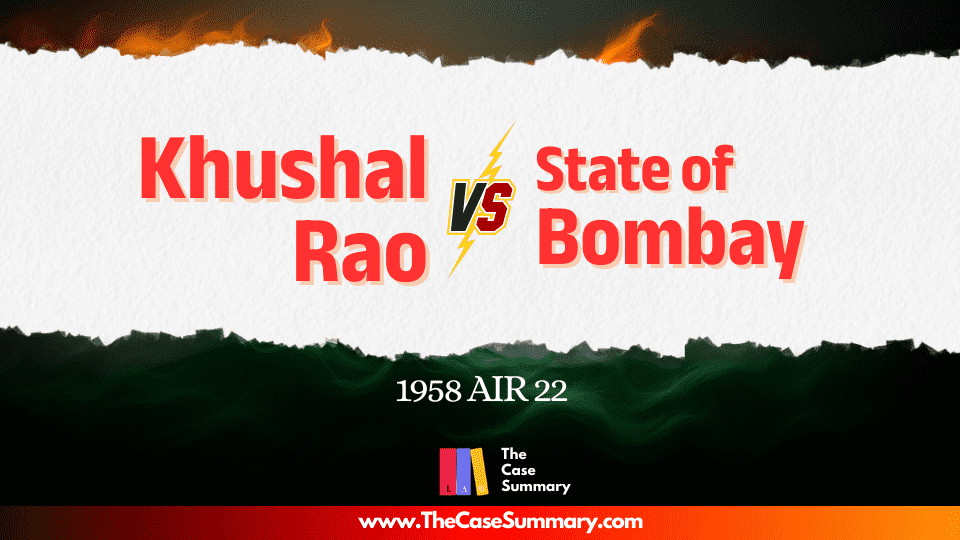Pakala Narayan Swami vs Emperor
Citation : (1939) 41 BOMLR 428
Jurisdiction : British India (In present India)
Appellant : Pakala Narayan Swami (Defendant in the court of first instance)
Respondent : Emperor [State] (Prosecutor in the court of first instance)
Facts :
A dead body, cut in seven pieces, was discovered inside a steel trunk in the compartment of a train on March 23, 1937. The deceased was later identified by his widow. She stated that the victim had lent money to the wife of Pakala Narayan at various instances. She further stated that the victim had left his house on March 21 to collect the dues from the wife of the accused after receiving a letter from her the previous day. On April 4, during a police investigation at the house of Pakala Narayan, he admitted that the victim had visited his house on March 21, and had left on March 22 by a passenger train. However, such statements were later denied by the defence during trial.
Two employees of the shop which had manufactured and sold the steel trunk stated that the trunk inside which the deceased was found was the same trunk which they had sold to the accused. Evidence was also provided by a jetka (horse-cart) driver that on March 23, he had taken the accused to the railway station along with the trunk. Pakala Narayan and his wife were charged with murder, conspiring to murder and causing disappearance of evidence of an offence.
Issues :
1. Whether the statement of the wife of the deceased was admissible as a dying declaration under section 32 (1) of the Indian Evidence Act or not.
2. Whether the statement made by the accused during police investigation was inadmissible under section 162 of the Code of Criminal Procedure or not.
Decisions :
It was held that the statement of the wife of the deceased was a dying declaration under section 32 (1) of the Indian Evidence Act. The statement of the deceased, that he was going to meet the accused’s wife, was related to the circumstances of transactions resulting in his death. Atkin J stated, “Such statements are relevant whether the person who made them was or was not at the time when they were made under expectation of death and whatever may be the nature of the proceeding in which the cause of his death comes into question.” Lack of anticipation of death did not nullify a dying declaration. As Atkin J further explained, “The statement may be made before the cause of death has arisen, or before the deceased has any reason to anticipate being killed.”
In contrast, the statement of the accused during the police investigation was held inadmissible under section 162 of the CrPC. However, it was held that there was ample evidence to convict the accused of murder. The deceased had stayed in the house of the accused. The accused had purchased and carried the trunk inside which the mutilated body of the deceased was discovered to the railway station. And finally, the accused failed to give a satisfactory explanation backing up his denial. Thus, the appeal was dismissed and the conviction was upheld.
Relevant Laws :
- The Indian Penal Code, 1860
- Section : 102B, 201, 302
- The Evidence Act, 1872 (India)
- Section : 32(1)
- The Code of Criminal Procedure, 1898
- Section : 162
Author :
1. S.M. Monzur Morshed
Note : The Case Summary is a platform by the law students, for the law students. We aim to summarize the facts and decisions of various important cases in both Bangla and English with utmost caution. However, this platform is in no way a replacement for going through the complete judgements by the law students and we discourage any learner from relying on case summaries alone. Thank you



